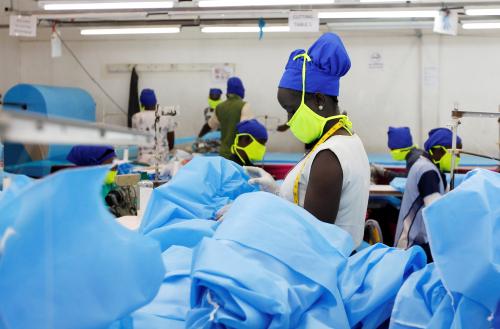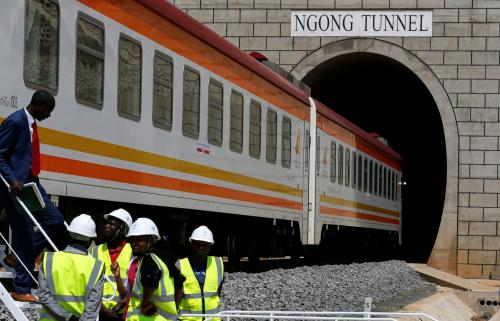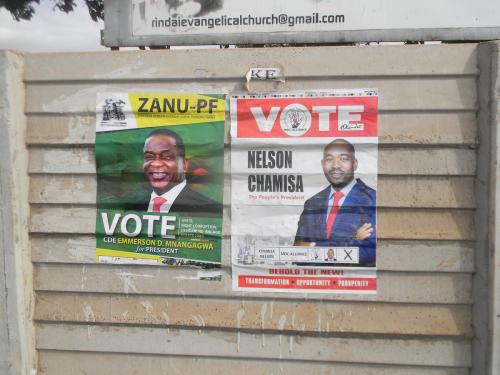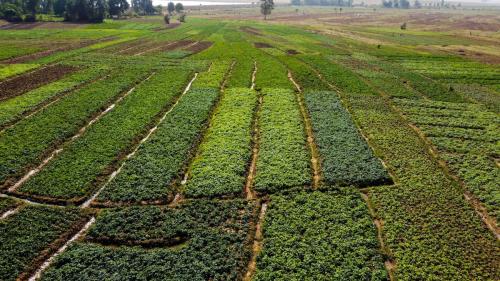African governments take varying approaches to mitigate the spread of COVID-19
As of this writing, Africa has registered over 39,000 confirmed COVID-19 cases and 1,600 deaths, with most cases concentrated in the north of the continent as well as in South Africa.
African countries have enacted various forms of lockdowns, external and internal border closures, and curfews to prevent the spread of the virus. As African Muslims prepare to observe Ramadan, many national governments are now looking to further curb behaviors that risk spreading the virus, while also empowering their citizens to practice their faith. Governments are also taking differing, innovative approaches to ensuring that vulnerable populations are protected, food is accessible to both rural and urban communities, informal vendors can successfully self-monitor, and misinformation is successfully combatted.
Notably, earlier this week, Malawi’s High Court delayed the government’s ordered 21-day lockdown, which would mandate that residents—except for those in law enforcement and essential services—obtain express permission to leave the area around their homes. Now, the fight over the lockdown will move to the country’s Constitutional Court. In the meantime, President Peter Mutharika announced an emergency cash transfer program for the country’s poorest households.
On Monday, Nigerian President Muhammadu Buhari announced that Nigeria would begin easing restrictions starting May 4, though he also announced new rules mandating wearing of face masks, imposing an evening curfew, and banning nonressential travel between different regions. The easing of restrictions comes as the Nigerian economy faces severe challenges due to COVID-19 and crashing oil prices. In response to these challenges, earlier this week, the International Monetary Fund approved $3.4 billion in emergency funding to the West African country. Regardless, resistance to lockdown measures is growing, with protests in Lagos turning violent earlier this week.
Meanwhile, tensions over COVID-19 patients are testing regional relationships, as Uganda and South Sudan look to deport COVID-positive Tanzanian and Kenyan nationals, moves that are contrary to World Health Organization guidelines.
Also in South Sudan, implementation of some provisions of the country’s recent peace agreement have been delayed due to the pandemic, as oil prices drop, donor funding is diverted, and movement restrictions hinder security trainings.
In positive news, in an attempt to address the country’s ventilator shortage (Kenya has only 259 ventilators), medical and engineering students at Kenyatta University in Kenya have announced that they are able to manufacture 50 ventilators per week—all up to ISO, Kenya Bureau of Standards, and Kenya Pharmacy and Poisons Boards standards. According to RFI, students in Uganda and Ghana are taking similar steps to address their countries’ shortages. Meanwhile, Ghana’s “dancing pallbearers” have gained worldwide fame and imitators as admirers edit in clips of their dancing alongside coverage of behavior deemed risky during the pandemic.
Safaricom net profits jump, driven by M-Pesa and data revenue
The net profit of Safaricom, Kenya’s biggest telecommunications company, has increased to $747 million for the year ending March 31, 2020, a 19.5 percent increase from earnings in the previous year. This growth was mainly driven by increased revenue from M-Pesa and mobile data, which grew 12.6 percent and 12.1 percent, respectively. In contrast, voice service revenue—which makes up the majority of the company’s total revenue—decreased 1.4 percent, and messaging revenue decreased 12.3 percent.
On Thursday, April 30, Safaricom also announced a deal with Visa to connect the M-Pesa financial services platform with Visa’s global network of merchants and cards. The deal, which still requires regulatory approval, will integrate M-Pesa into the global payments system.
Côte d’Ivoire convicts presidential candidate of embezzlement and withdraws from the African Court on Human and Peoples’ Rights
On Tuesday, April 28, Côte d’Ivoire presidential candidate Guillaume Soro was convicted in absentia of embezzlement and laundering of public resources after being found guilty of using $2 million in public funds to buy a house while serving as prime minister in 2007. He was sentenced to 20 years in prison and fined $7.6 million; the court also ordered that Soro be “stripped of his civic rights” for seven years. The verdict makes it likely that Soro, who currently lives in France, will be ineligible to run in Côte d’Ivoire’s October presidential election.
Soro, who formerly served as prime minister and speaker of parliament under current President Alassane Ouattara, has also been accused by Côte d’Ivoire’s public prosecutor of plotting a coup against Ouattara and is expected to face another trial over these allegations. Soro has denied all allegations, and his lawyers boycotted the embezzlement trial, which lasted only a few hours.
The African Court on Human and Peoples’ Rights has ordered Côte d’Ivoire to suspend its arrest warrant for Soro and to release 19 of his relatives, who have been imprisoned for several months. As a result, Côte d’Ivoire has withdrawn from the court, stating that the court’s decisions “undermine the sovereignty of the state of Côte d’Ivoire… [and] are also likely to cause serious disruption to the legal order.”
The Brookings Institution is committed to quality, independence, and impact.
We are supported by a diverse array of funders. In line with our values and policies, each Brookings publication represents the sole views of its author(s).







Commentary
Africa in the news: COVID-19, Côte d’Ivoire, and Safaricom updates
May 2, 2020